INTERNACIONAL
Xi Jinping’s surprise no-show at BRICS Summit fuels speculation about China’s global standing
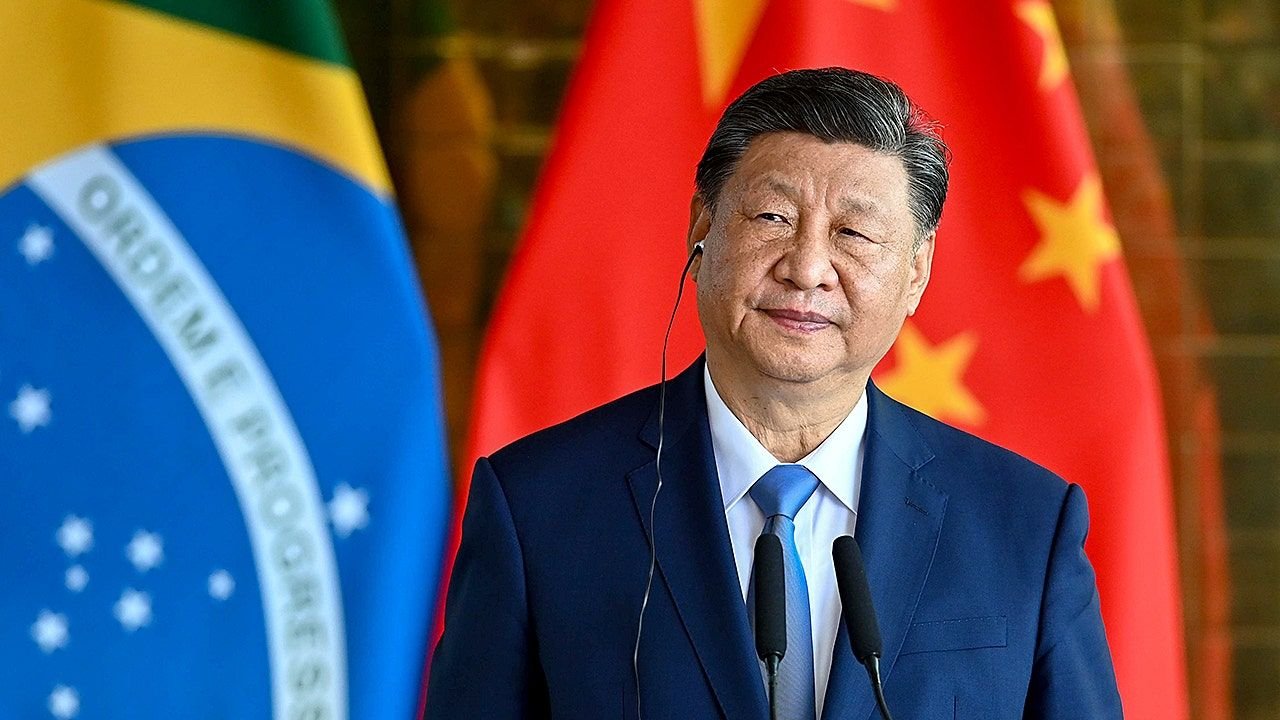
NEWYou can now listen to Fox News articles!
Chinese President Xi Jinping will not attend this week’s BRICS Summit in Brazil, marking the first time the Chinese leader has missed the gathering of major emerging economies. The abrupt decision has triggered widespread speculation about internal political dynamics within China and the fraying cohesion of BRICS itself.
China’s official explanation — a «scheduling conflict» and the fact that Xi already met with Brazilian President Luiz Inácio Lula da Silva earlier this year, according to the South China Morning Post — has been met with skepticism. Premier Li Qiang will attend the summit in Xi’s place, continuing a recent trend of Xi scaling back his appearances on the global stage.
«That doesn’t make sense,» said Gordon Chang, an expert on U.S.-China relations. «There are many other countries at the BRICS summit, not just Brazil. To me, it’s extremely significant that Xi Jinping is not going. It suggests turbulence at home — there are signs he’s lost control of the military and that civilian rivals are reasserting power. This is a symptom of that.»
RUSSIA’S PUTIN HOSTS CHINA’S XI AT MASSIVE MOSCOW MILITARY PARADE ON RED SQUARE
Chinese President Xi Jinping listens as Vietnamese Prime Minister Pham Minh Chinh, not pictured, speaks during their meeting at the Office of the Party Central Committee in Hanoi, Vietnam, on Monday, Apr. 14. (AP/Minh Hoang)
Bryan Burack of the Heritage Foundation agrees that Xi’s absence underscores deeper issues: «It’s another indication that BRICS is not going to be China’s vassalization of the Global South.» He noted that countries like Brazil and Indonesia have recently imposed tariffs on China over industrial overcapacity and dumping, moves that suggest widening rifts within the group.
«China is actively harming all those countries for the most part, maybe with some exceptions, through its malign trade policies and dumping and overcapacity.»
Tensions with India and global trade pressure may also be factors
Some analysts point to rising China-India friction as a contributing factor in Xi’s decision to skip the summit.
«China has been at war with India for decades, essentially,» Burack said. «These are fundamentally opposing interests. It’s difficult to see China changing its behavior in the near term, and that will keep tensions high.»
India’s Prime Minister Narendra Modi is expected to take a leading role at the gathering, potentially another deterrent for Xi’s attendance.
Another key leader — Russian President Vladimir Putin — is only expected to address the group by video.
AFTER TRUMP’S DEPARTURE, G7 LEADERS FAIL TO REACH AGREEMENTS ON KEY ISSUES
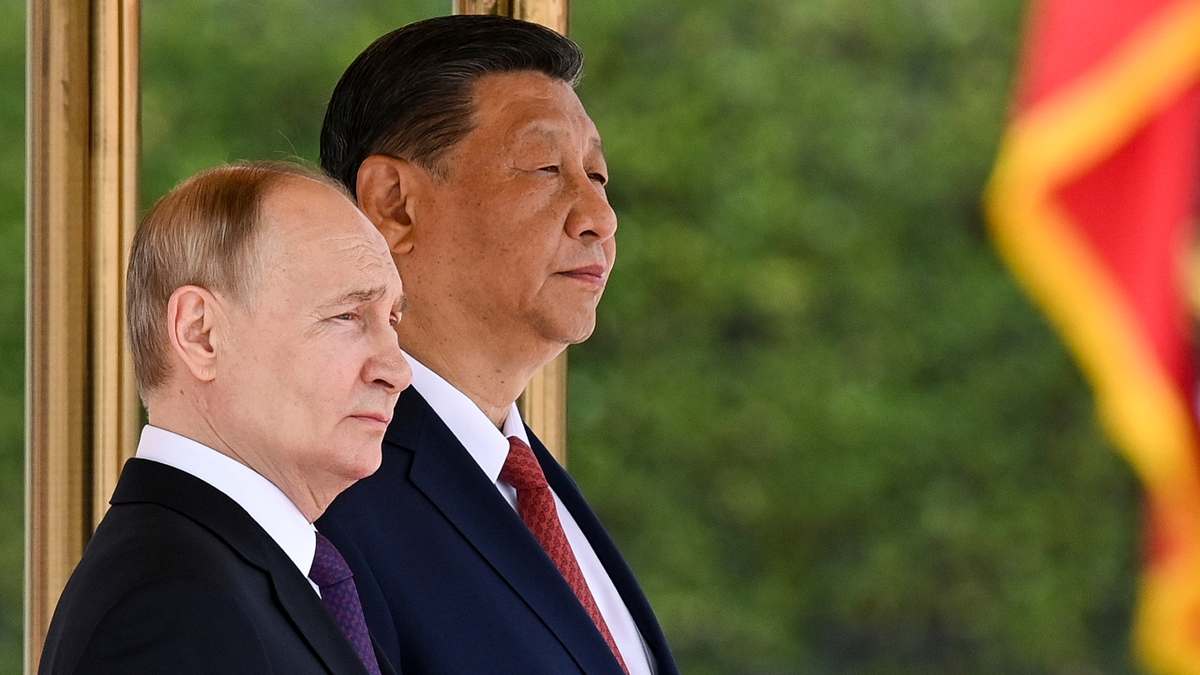
Chinese President Xi Jinping, right, and Russian President Vladimir Putin, left, are two key leaders of the BRICS alliance. (Sergei Bobylev, Sputnik, Kremlin Pool Photo via AP)
BRICS: United in name, divided in decades-long tensions
Formed by Brazil, Russia, India and China and later joined by South Africa, BRICS was envisioned as a non-Western counterweight to G7 dominance. It has expanded to include Egypt, Ethiopia, Iran, the UAE and, most recently, Indonesia, strengthening its economic footprint.
Economist Christian Briggs highlighted BRICS’s massive scale: «BRICS now comprises 12 full members and up to 23 when counting partners. Collectively, they account for over 60% of the world’s GDP and around 75% of the global population. They control vast natural resources and a growing share of global trade flows.»
Yet despite its scale, the bloc remains ideologically and strategically fragmented. «It’s a group of countries that hate each other,» Burack said bluntly. «China is harming many of them through unfair trade practices. There’s not a lot of incentive for real unity.»
Currency ambitions and strategic divergences
The alliance’s aspirations to challenge the U.S. dollar through alternative payment systems and a potential BRICS currency have gained media traction — but experts caution against overestimating this threat.
«There’s been a lot of fearmongering about a BRICS currency,» said Burack. «But the interests of these countries are completely divergent. There’s more smoke than fire when it comes to a currency challenge to the dollar.»
Chang echoed this skepticism: «The only country that can challenge the dollar is the United States. Weakness in the dollar is due to what we are doing domestically, not what the BRICS are doing.»
Still, Briggs offered a counterpoint, arguing that BRICS members are already reshaping global currency flows.
«They’re moving away from the dollar into digital yuan, rupees, rubles. China has launched a SWIFT alternative already adopted by the Caribbean banking sector — trillions of dollars are shifting.»
MACRON CHIDES TRUMP, CHINA OVER TRADE, UKRAINE, GAZA: POLICIES ‘WILL KILL GLOBAL ORDER’
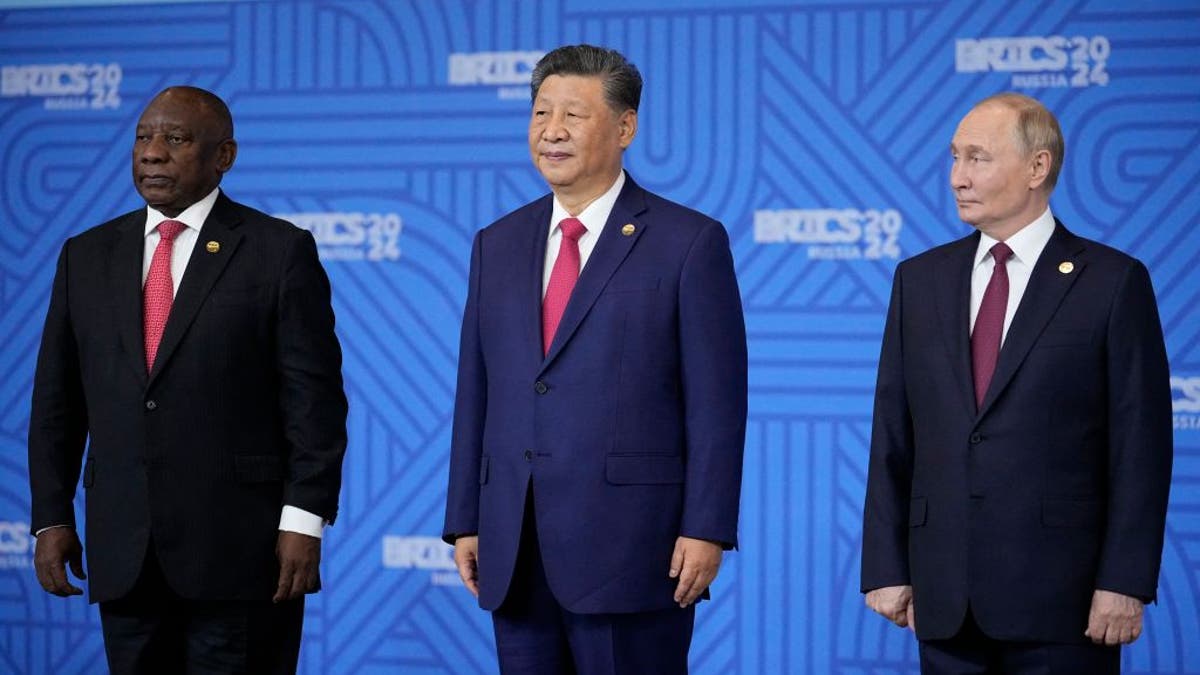
South African President Cyril Ramaphosa, Chinese President Xi Jinping and Russian President Vladimir Putin pose for a family photo during the BRICS summit in Kazan on October 23, 2024. (Alexander ZemlianichenkoPool/AFP via Getty Images)
Is BRICS still a threat to U.S. influence?
While its cohesion remains questionable, BRICS poses a long-term challenge to U.S. influence — particularly in regions where Washington has retreated diplomatically and economically.
«China filled the void left by the U.S. in places like Africa,» said Briggs. «Now it controls about 38% of the world’s minerals. Meanwhile, Russia’s economy has doubled despite sanctions, because they preemptively reduced reliance on the dollar.»
Yet Chang sees India as a brake on any aggressive anti-Western tilt. «BRICS has an ‘I’ in it—and that’s India. Modi doesn’t want to be part of an anti-Western bloc. As long as India’s in BRICS, the rest of the world is safe.»
CLICK HERE TO GET THE FOX NEWS APP

India’s Prime Minister Narendra Modi is expected to take a leading role at the summit, potentially another deterrent for Xi’s attendance. (Sipa USA via AP)
A missed opportunity — or a calculated power move?
To some, Xi’s no-show signals instability in Beijing. To others, the opposite: it demonstrates confidence in China’s dominance over the other BRICS members.
«He doesn’t have to be there,» Briggs contended. «Xi’s power allows him to delegate. China is trading with nearly 80% of the world now. He’s moving the agenda forward even in absentia.»
What’s clear is that BRICS continues to evolve — its internal contradictions as visible as its geopolitical ambitions. Whether Xi’s absence marks a retreat or a recalibration remains one of the key questions hovering over the summit in Brazil.
INTERNACIONAL
Guerra comercial: Donald Trump postergó al 1° de agosto la fecha para imponer aranceles, pero aumentó la presión sobre sus socios
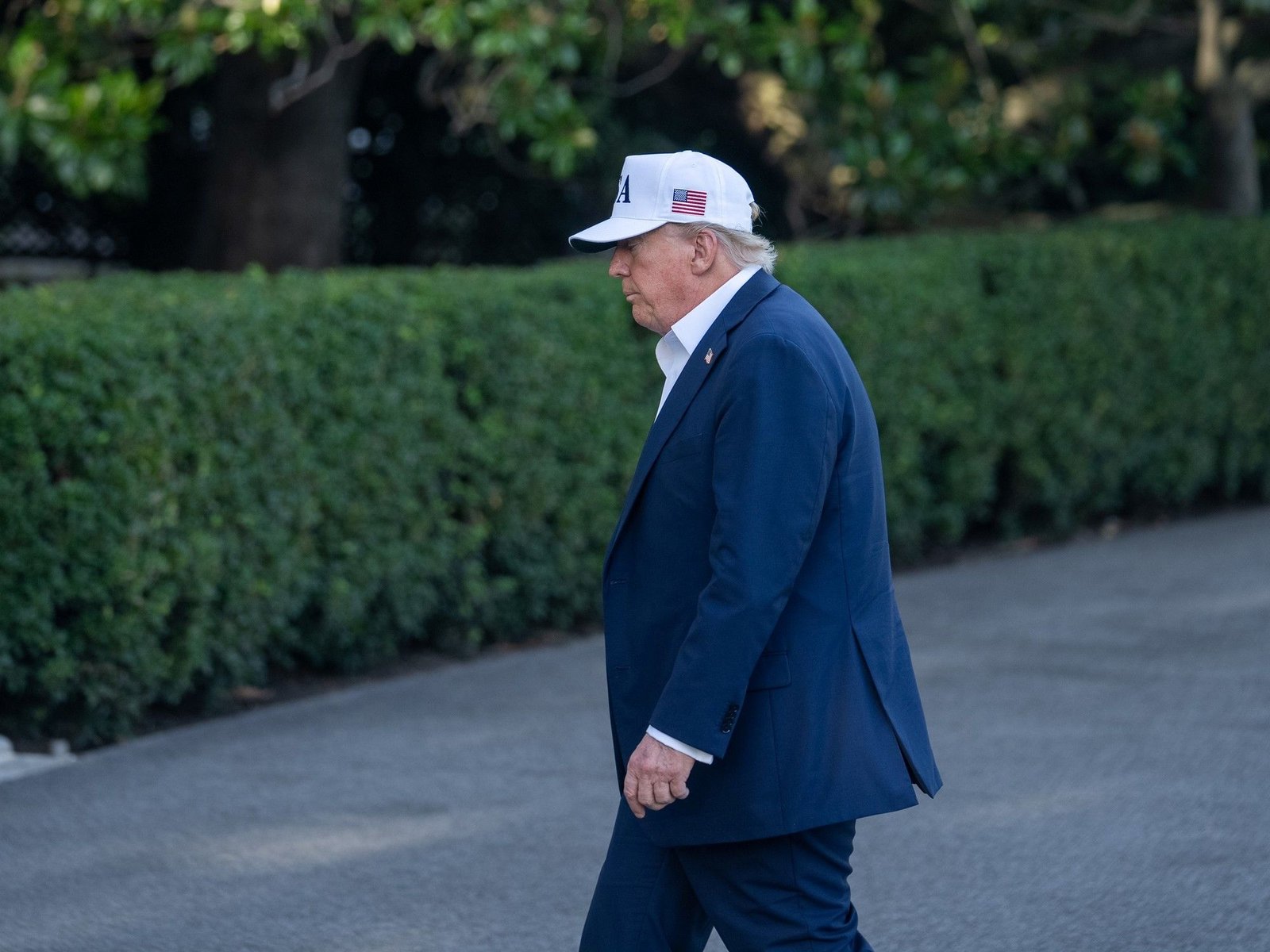
A través de un decreto, el presidente de Estados Unidos, Donald Trump, anunció este lunes que prorrogó hasta el 1° de agosto la fecha límite para el aumento de los aranceles “recíprocos” que había anunciado que aplicaría a todos los países. De todos modos, aumentó la presión a varios de sus socios comerciales con el envío de cartas informándoles una nueva tasa arancelaria, lo que agregó confusión al panorama comercial general.
Se esperaba que los aranceles «recíprocos» entraran en vigor este miércoles, la fecha que Trump había fijado como límite para negociar acuerdos bilaterales. Pero la complejidad de concretar arreglos comerciales con tantos países en simultáneo era una realidad difícil de resolver.
La Argentina, que le había sido aplicado un arancel “recíproco” de 10% al ingreso a Estados Unidos de todos sus productos comerciales, también se encuentra en etapa de negociaciones para poder bajar a 0% en una lista de unos 100 productos.
Los aranceles recíprocos fueron anunciados por Trump en abril y dejó en shock a la comunidad internacional porque incluía un mínimo de 10% a máximos de 70% a todos los socios comerciales de EE.UU. Trump argumenta que los productos estadounidenses enfrentan aranceles “injustos” por parte del resto del mundo, mucho más altos que los que EE.UU. les impone.
A partir de entonces se lanzó una carrera frenética para negociar acuerdos, lo que provocó una enorme incertidumbre en el comercio global. Ahora que Trump prorrogó por decreto el límite al 1 de agosto, los países tendrán más tiempo para llegar a un arreglo con el Departamento de Comercio de EE.UU y la oficina del Representante de Comercio.
Trump anunció también este lunes que envió cartas a 14 países, incluidos importantes socios como Japón y Corea del Sur, que especifican nuevas tasas arancelarias «recíprocas» que son más altas o más bajas en comparación con los niveles anunciados en abril.
El primer ministro de Japón, Shigeru Ishiba, y el presidente de Corea del Sur, Lee Jae-myung, fueron los primeros destinatarios de las cartas de Trump.
Los nuevos aranceles publicados el lunes son sorprendentemente similares a los gravámenes del «Día de la Liberación» que Trump anunció en abril, y comenzarían en 25 por ciento para Japón, Corea del Sur, Malasia, Kazajstán y Túnez; y llegar hasta el 40 por ciento para Myanmar y Laos. Mientras tanto, Sudáfrica, Bosnia, Indonesia, Bangladesh, Serbia, Tailandia y Camboya enfrentarían aranceles de entre el 30 y el 36 por ciento.
En las cartas enviadas a estos países, Trump dijo que está particularmente en desacuerdo con los déficits comerciales que Estados Unidos tiene con ellos, lo que significa que Estados Unidos compra más bienes de allí en comparación con la cantidad que las empresas estadounidenses exportan a esos países.
La secretaria de Prensa de la Casa Blanca, Karoline Leavitt, fue quien anunció que Trump firmaría una orden ejecutiva el lunes para empujar la fecha límite hasta agosto, lo cual es «en el mejor interés del pueblo estadounidense».
También dijo que el teléfono de Trump «no deja de sonar de los líderes mundiales todo el tiempo que le ruegan que llegue a un acuerdo». Sin embargo, solo se han anunciado tres acuerdos en los últimos tres meses.
En las cartas enviadas, Trump amenazó con aumentar los aranceles incluso más que las tasas especificadas si un país tomaba represalias contra Estados Unidos con sus propios aranceles.
Trump dijo que estas tarifas estarían «separadas de todos los aranceles sectoriales», lo que significa, por ejemplo, que el nuevo arancel no se sumará al arancel automotriz actual del 25% o del acero y aluminio, también del 25%, confirmó la Casa Blanca.
La perspectiva de aranceles más altos sobre los bienes podría traducirse en precios más altos para los consumidores estadounidenses. Entre los principales bienes que Estados Unidos importa de Corea del Sur y Japón, por ejemplo, se encuentran automóviles, autopartes, semiconductores, productos farmacéuticos y maquinaria. Trump ha impuesto o amenazado con imponer aranceles específicos de la industria a muchos de estos productos.
Economistas, empresarios y funcionarios extranjeros se esforzaron por interpretar la avalancha de nuevas propuestas arancelarias de este lunes. No estaba claro, dijeron, si el gobierno era serio en sus planes o simplemente esperaba reactivar las conversaciones estancadas, aunque ambos escenarios se sumaron a la creciente incertidumbre económica.
«Existe una enorme amenaza, pero es como si no quisiera apretar el gatillo», dijo Marcus Noland, vicepresidente ejecutivo y director de estudios del Instituto Peterson de Economía Internacional, sobre Trump. «Sigue extendiendo el plazo para darle tiempo a la gente para llegar a un acuerdo. Ya sea que se trate de otro farol o no, ciertamente deja las cosas sin resolver.”
INTERNACIONAL
Israeli prime minister answers whether he is worried about being jailed in NYC by Zohran Mamdani
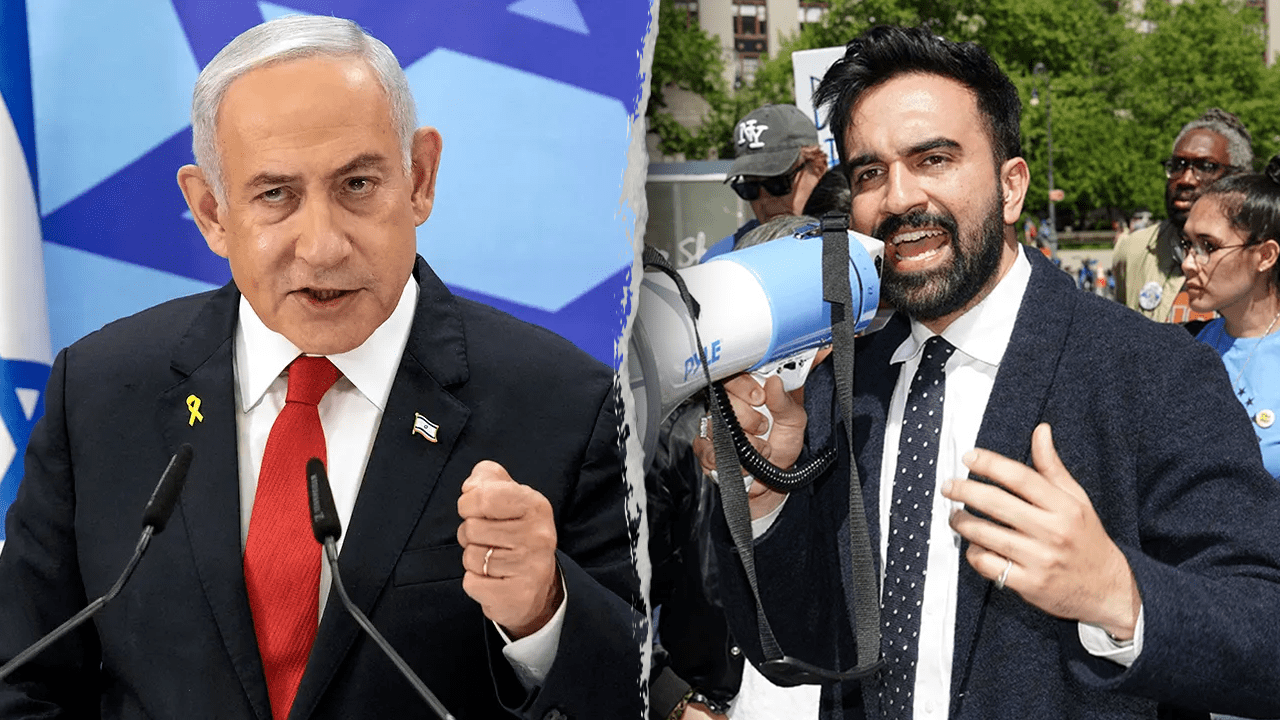
NEWYou can now listen to Fox News articles!
After Zohran Mamdani, New York City’s leading mayoral candidate, pledged to arrest Israeli Prime Minister Benjamin Netanyahu if he visits the city, Netanyahu responded to questions about whether he’s worried.
In December, Mamdani, who identifies as a democratic socialist and is the Democratic Party’s nominee for New York City mayor, said, «as mayor, New York City would arrest Benjamin Netanyahu.»
«This is a city that our values are in line with international law. It’s time that our actions are also,» Mamdani said, referring to the International Criminal Court issuing an arrest warrant against Netanyahu as well as Israeli Defense Minister Yoav Gallant.
Netanyahu met with President Donald Trump at the White House on Monday evening to discuss a range of topics, including Iran and Israel’s ongoing war with Hamas.
NETANYAHU SURPRISES TRUMP WITH FORMAL NOBEL PEACE PRIZE NOMINATION DURING HISTORIC WHITE HOUSE MEETING
Left: Israeli Prime Minister Benjamin Netanyahu speaks during a press conference in Jerusalem on December 9, 2024. Right: Zohran Mamdani, New York State Assemblyman and mayoral candidate for New York City, speaks at an emergency rally held by the Working Families Party to criticize the Trump administration, after ICE agents arrested Ras Baraka, mayor of Newark and New Jersey Democratic candidate for governor, at Foley Square in New York, New York, U.S., May 10, 2025. (MAYA ALLERUZZO/POOL/AFP via Getty Images and REUTERS/Bing Guan)
When asked whether he was worried about the possibility of facing arrest in America’s largest city, Netanyahu said, «I’m not concerned about that.»
The prime minister added, «I’m going to come there with the President Trump and we’ll see.»
He went on to say that Mamdani’s threat is «silly in many ways, because it’s just not serious.»
Trump also chimed in, saying, «We don’t know who the mayor is going to be yet, but this is a communist. He’s not a socialist. He’s a communist, and he’s said some really bad things about Jewish people.»
TOP IRANIAN CLERIC CALLS FOR TRUMP’S EXECUTION
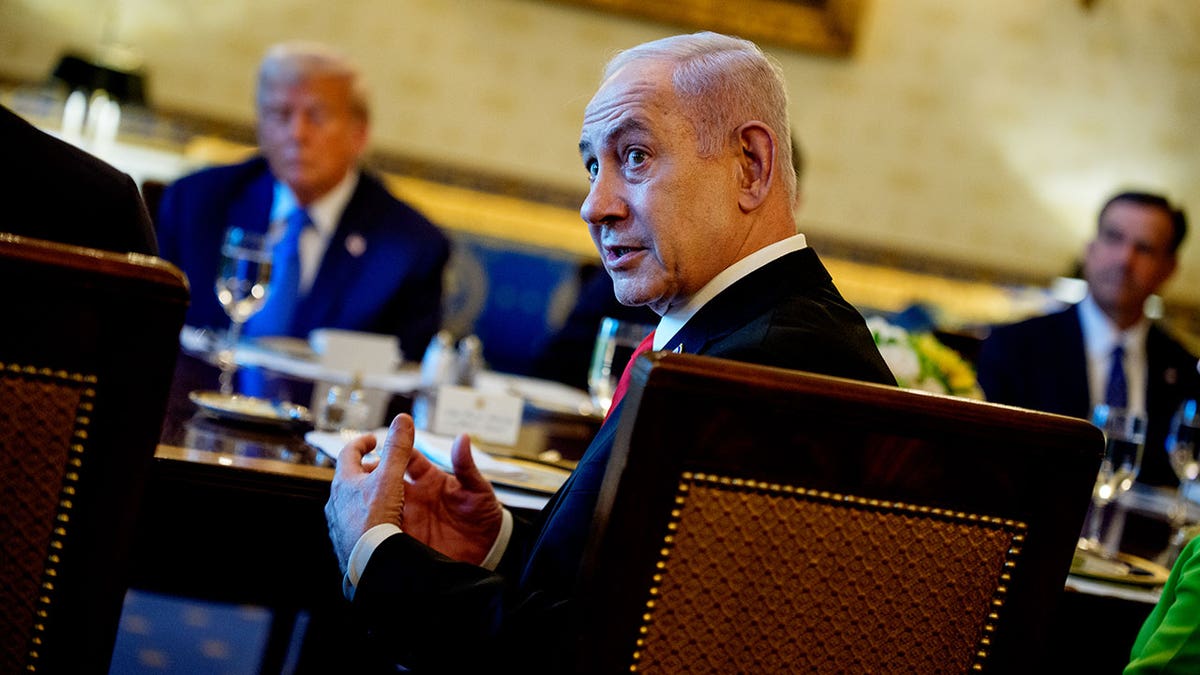
Israeli Prime Minister Benjamin Netanyahu, accompanied by U.S. President Donald Trump (L), speaks during a dinner in the Blue Room of the White House on July 07, 2025 in Washington, DC. (Andrew Harnik/Getty Images)
«He might make it,» Trump said. «But, you know, it all comes through the White House. He needs the money through the White House. He needs a lot.
«He’s going to behave. He’ll behave. He better behave. Otherwise, he’s going to have big problems.»
Hearkening back to an earlier question asked by reporters, Netanyahu said, «what is serious» is whether there can be a two-state solution in Gaza that does not pose an existential threat to the Israeli people.
«Look, there’s enough craziness in the world, but I guess it never ends,» he said. «After October 7th, people said the Palestinians had a state, Hamas state in Gaza, and look what they did with it. They didn’t build it up. They built down two bunkers into terror tunnels, after which they massacred our people, raped our women, beheaded our men, invaded our cities and our towns and our kibbutzim and did horrendous, horrendous massacres, the kind of which we didn’t see since World War two and the Nazis, the Holocaust.»
ISRAEL HAMMERS HOUTHIS WITH AIRSTRIKES, REBELS RESPOND AMID RED SEA FLARE-UP
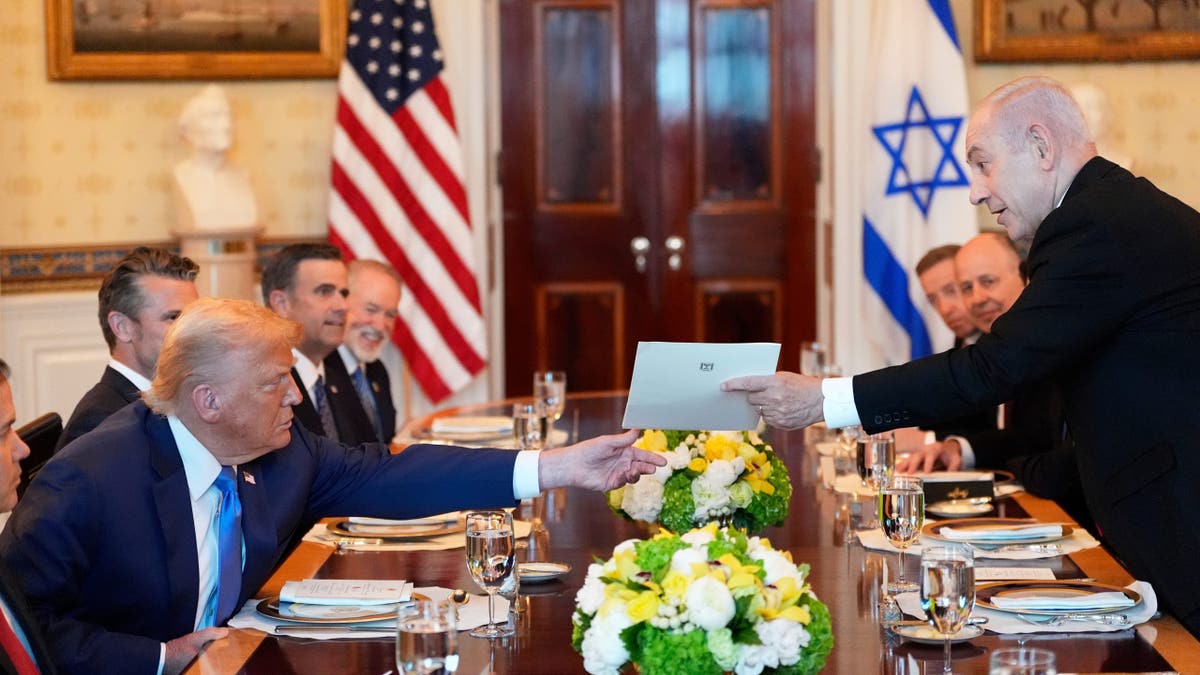
Israel’s Prime Minister Benjamin Netanyahu, right, hands President Donald Trump a folder during a meeting in the Blue Room of the White House, Monday, July 7, 2025, in Washington. ((AP Photo/Alex Brandon))
«So people aren’t likely to say, let’s just give them another state. It’ll be a platform to destroy Israel,» he added. «We’ll work up a peace with our Palestinian neighbors, those who don’t want to destroy us, and we’ll work out a peace in which our security, the sovereign power of security, always remains in our hands.»
CLICK HERE TO GET THE FOX NEWS APP
«Now, people will say it’s not a complete state. It’s not a state, it’s not that, we don’t care,» he said. «You know, we vowed, ‘never again.’ Never again is now, it’s not going to happen again.»
INTERNACIONAL
Los hutíes atacaron a otro barco en el mar Rojo
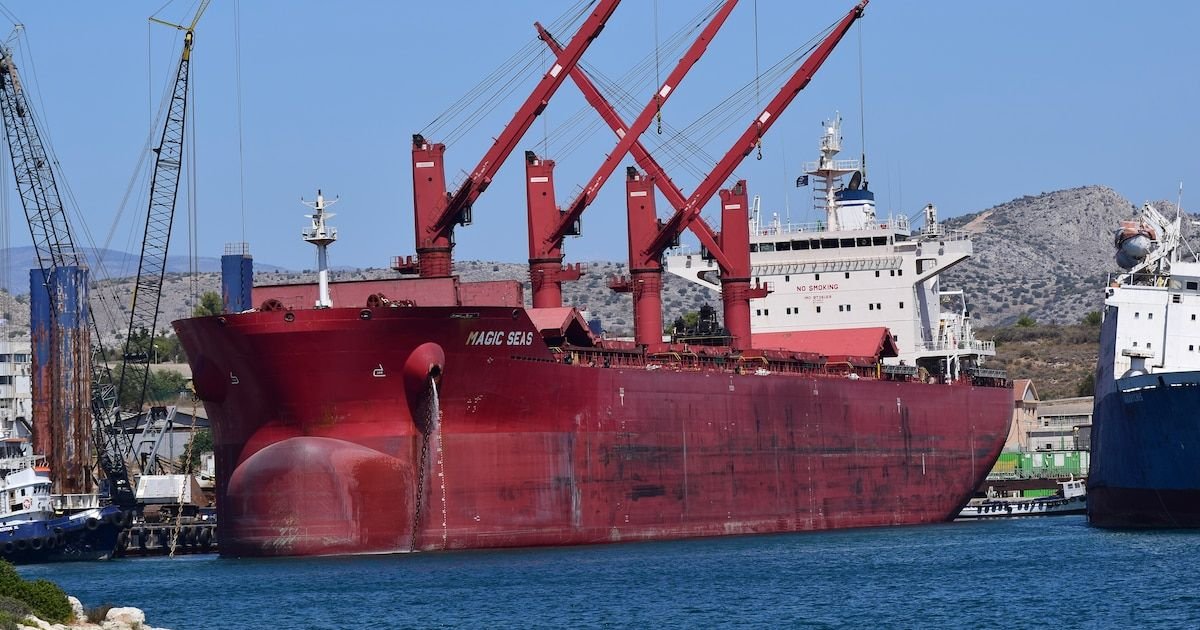
Un buque de carga con bandera de Liberia fue atacado el lunes en el mar Rojo, en un incidente que se registró después de que los rebeldes hutíes de Yemen presumiblemente hundieran otro barco en un ataque similar.
Los hutíes había dicho previamente que el domingo atacaron el buque de carga Magic Seas, también con bandera de Liberia y de propiedad griega, utilizando drones, misiles, granadas autopropulsadas y armas de fuego, lo que obligó a sus 22 tripulantes a abandonar la embarcación.
Los dos ataques y una ronda de bombardeos israelíes contra Yemen el lunes han aumentado los temores de una renovada campaña hutí contra el transporte marítimo que podría atraer de nuevo a las fuerzas occidentales a la zona, especialmente luego que el gobierno del presidente estadounidense Donald Trump lanzara una ofensiva aérea contra los insurgentes hutíes.
El ataque al barco ocurre en un momento delicado en Medio Oriente, ya que un posible alto el fuego en la guerra entre Israel y Hamas pende de un hilo, e Irán sopesa si reiniciar las negociaciones sobre su programa nuclear tras los ataques estadounidenses contra sus instalaciones atómicas durante la guerra israelí contra la República Islámica. El primer ministro israelí, Benjamin Netanyahu, también estaba viajando a Washington para reunirse con Trump.
La firma privada de seguridad Ambrey reportó el último ataque en el mar Rojo el lunes por la noche, detallando que dos guardias de seguridad resultaron heridos y otros dos se reportaban como desaparecidos. Dijo que el buque se dirigía al norte hacia el Canal de Suez cuando fue atacado por hombres en pequeñas embarcaciones y por drones equipados con explosivos. Los guardias de seguridad a bordo abrieron fuego durante el ataque.
“Los motores del buque aparentemente habían sido desactivados y Ambrey observó que el buque había comenzado a viajar a la deriva”, indicó la firma.
No había más detalles sobre el ataque por el momento, que también fue registrado por la agencia británica de Operaciones de Comercio Marítimo, o UKMTO. El canal de noticias satelital al-Masirah de los hutíes informó sobre el ataque, pero los rebeldes no se adjudicaron la autoría hasta el momento.

Sin embargo, Moammar al-Eryani, el ministro de información del gobierno internacionalmente reconocido de Yemen, que se opone a los hutíes y tiene su sede en el sur de Yemen, dijo que los rebeldes también llevaron a cabo el segundo ataque. Los hutíes controlan la mitad norte de Yemen y su capital, Saná.
El ataque del domingo al Magic Seas, otro buque de carga que se dirigía al norte hacia el Canal de Suez de Egipto, se registró a unos 100 kilómetros al suroeste del puerto de Hodeida, Yemen, que está bajo control de los hutíes. Esa es la misma área del ataque del lunes por la noche.
El UKMTO reportó primero que un equipo de seguridad armado en el buque había respondido a un ataque inicial de disparos y granadas propulsadas por cohetes, aunque el buque luego fue impactado por proyectiles. El UKMTO explicó que el barco estaba haciendo agua y su tripulación había abandonado la embarcación. Fueron rescatados por un barco que pasaba, añadió.
Una patrulla antipiratería de la Unión Europea en la región, llamada Operación Atalanta, indicó que 22 marineros habían estado a bordo del Magic Seas.
Los Emiratos Árabes Unidos dijeron más tarde el lunes que uno de sus barcos de Abu Dhabi Ports recibió una llamada para ayudar en el mar Rojo y rescató a las 22 personas que iban a bordo del Magic Seas.
El portavoz militar hutí, el general de brigada Yahya Saree, adjudicó el ataque del domingo y dijo que los rebeldes utilizaron misiles y drones acuáticos cargados de explosivos para atacar el barco.

“Nuestras operaciones continúan apuntando a las profundidades de la entidad israelí en la Palestina ocupada, así como a impedir la navegación marítima israelí en los mares Rojo y Arábigo… hasta que la agresión sobre Gaza se detenga y se levante el bloqueo en su contra”, sostuvo Saree.
Los propietarios del Magic Seas no respondieron a una solicitud de comentarios. Saree dijo más tarde que el buque se había hundido en el mar Rojo.
(Con información de AP)
-
POLITICA2 días ago
Para La Libertad Avanza el acuerdo con PRO está encaminado, pero aún hay mutua desconfianza
-
POLITICA3 días ago
El Gobierno avanza con un plan que complica a los gobernadores y pone en riesgo sus alianzas en el Congreso
-
POLITICA2 días ago
🔴URGENTE – La Justicia liberó a tres militantes kirchneristas acusados en la causa por los desmanes en la casa de Espert























